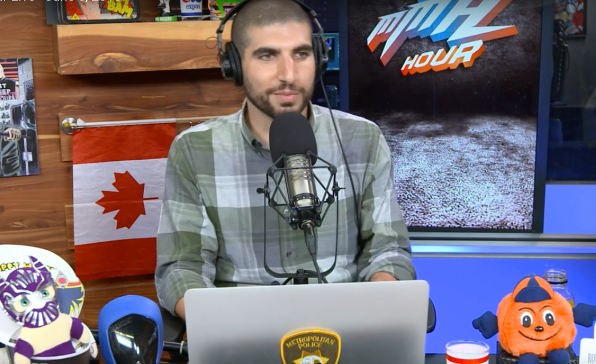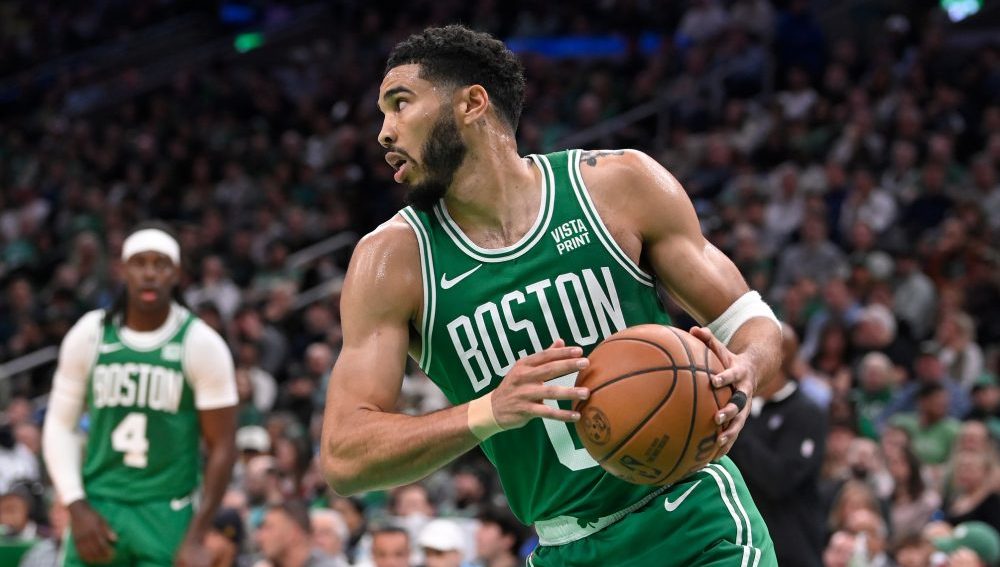The UFC’s decision Saturday to escort MMAFighting.com journalists Ariel Helwani, E. Casey Laydon, and Esther Lin out of UFC 199 and ban them for life has created plenty of controversy and drawn substantial attention throughout the wider sports world, with Helwani himself addressing the issue on TSN 690 Montreal, The Dan Patrick Show, The Rich Eisen Show and his own The MMA Hour Monday. (UPDATE: The ban was later lifted by UFC Monday night.) That’s as it should be, as the organization’s reported behavior here seems like an attack on sports journalism as a whole, not merely a feud with a few high-profile reporters, and it’s something that everyone in sports journalism should take notice of. It’s possible that the UFC will voluntarily recant in the wake of the criticism they’re taking here and allow Helwani, Laydon and Lin access again, but the key question is what will happen if they don’t; will the sports media world forget and move on to covering the next UFC story as if nothing happened, or will they attempt to exert their collective power to stand up for journalistic coverage of mixed-martial arts?
First, it’s important to discuss why this is a journalistic issue. The key part there comes from the denial of access. Sports organizations aren’t mandated to provide media access to everyone who requests it, especially for seating-limited events such as the Super Bowl or a big UFC fight, but where access becomes a journalistic issue is if either initial denial or subsequent revocation is based on valid reporting that the organization doesn’t like. We’ve seen that plenty of times, especially in college sports, but those decisions are often reversed once they come to wider scrutiny. It’s important for sports journalists as a whole to challenge them, though, even if they’re not the ones affected. Whenever reporters are booted after fair coverage, it not only harms those individuals’ ability to do their job, it harms the whole profession; it means that other reporters have to walk more carefully for fear of losing their own access, and it raises questions about if those who haven’t yet been booted are reporting all they should or just trying to stay in the organization’s good books.
Another remarkable factor in the Helwani situation is the sheer innocuousness of the reports that apparently got him in trouble. It seems that UFC president Dana White got mad because Helwani broke the news that Brock Lesnar would fight at UFC 200 before the organization’s announcement of that, and also broke the news of the Conor McGregor – Nate Diaz rematch at UFC 202 ahead of when the UFC wanted that information released. This isn’t anti-UFC editorializing, or reporting of a UFC scandal or a serious issue, all of which could be valid under the right circumstances but all of which might also have a little more rationale for a negative response from the organization. It’s also not reporting inaccurate information, which can also sometimes deserve a negative response. Instead, it’s merely breaking soon-proven-true news of upcoming fights. That’s unquestionably a reporter’s job, and it’s not a reporter’s job to wait for the UFC’s preferred timing to announce it.
George Orwell’s famed quote of “Journalism is printing what someone else does not want printed: everything else is public relations” seems apropos in this situation; the UFC got journalism when it wanted PR, and it punished the journalist as a result. Of course, there could potentially be an issue if a reporter was getting this information from embargoed releases and specifically violating those embargoes, but that’s not what happened here. Helwani got this information from his sources, reported it, and was proven correct. The equivalent would be the NFL trying to freeze out Adam Schefter for reporting future Super Bowl locations from his sources before they were ready to issue the official press release; that’s clearly ridiculous, and this situation should be seen the same way.
If anything, this whole episode shows just how thin-skinned the UFC is and how desperate they are to control its coverage. There have been rumblings on this front before, such as White blasting Helwani in January for a report that turned out to be true and Fox firing Helwani in March, reportedly after they received UFC criticism for his discussing of the idea of fighters’ free agency, but this particularly illustrates it. (Also, it doesn’t make Fox look good; they completely failed to go to bat for Helwani and reporting in March, opting instead to do coverage that just promotes the UFC. Helwani said on Monday’s The MMA Hour that UFC parent company Zuffa, not Fox, paid talent for pre- and post-fight shows, which is also interesting and doesn’t help Fox’s appearance here.) The UFC has also doubled down in the wake of the criticism for banning Helwani, with spokesperson Dave Sholler saying Helwani should have sought comment from the organization before breaking his stories and White saying Helwani will be banned for “as long as I’m here.” As Yahoo’s Kevin Iole wrote, that illustrates plenty about White and UFC CEO Lorenzo Fertitta:
This is a case of White and Fertitta being men who are extraordinarily passionate about controlling every last detail of the way their product is presented. They obsess over the smallest of things, like their choice last year to change the font on the graphics they use for television.
As a result, they’re failing to see the bigger picture in this case. They’re so immersed in the minute details that they are ignoring the obvious.
…The decision to ban Helwani is egregiously wrong, though it’s hardly the first time the UFC has been at odds with the media that covers it.
…The UFC seriously needs to consider its relationship with the media.
And that should start by reinstating Helwani as soon as possible.
The key question for anyone covering MMA is what they do next. Do they proceed as normal, and hope that White doesn’t get mad at their coverage and kick them out on a whim? Or do they continue to push back if Helwani and his colleagues aren’t reinstated? If the outrage is forgotten, White and the UFC can survive this and keep them banned; yes, MMAfighting.com is popular, and yes, corporate parent Vox has some pull, but there are plenty of other media outlets out there, and if they keep covering the UFC as if nothing happened, the sport should be just fine. In fact, the coverage of it will probably be more to White’s liking; if his treatment of Helwani is allowed to stand, everyone who covers the sport will have to tread much more carefully and provide coverage that fits what the UFC wants.
The other option is for journalists to unite and fight back. Alone, no journalist is going to make a difference here, but if a substantial portion of the MMA media formed an organization (analogous to the BBWAA, or other sport-specific media organizations) and lobbied and negotiated for Helwani’s restatement and specific UFC media policies that would prevent this kind of dismissal, that could have an impact. A lack of in-person coverage from MMAFighting alone won’t put much of a dent in the UFC’s popularity, but what if big mainstream media outlets in particular said they wouldn’t cover the sport without assurances they could report on it fairly? What if writers from smaller outlets came together in numbers to put pressure on the UFC to change its policies? What if even those from other realms of the sports media joined in and took the UFC to task here, not just for today or tomorrow, but until they operate in a way that isn’t attacking sports journalism? There may not be seemingly a huge benefit to doing so right now, but the war to restrict access and control the tone and details of coverage isn’t limited to the UFC or MMA; it’s something that could affect everyone who covers sports, and it’s something that a strong stand needs to be taken against. We are all Ariel Helwani.








Comments are closed.